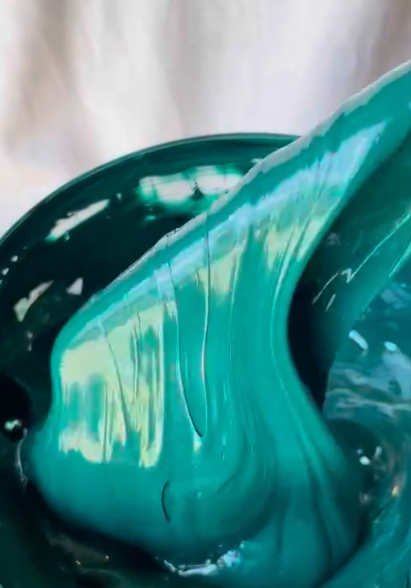The Growing Market for Eco-Friendly Plastisol Ink!
Hello everyone! Today we’re going to talk about eco-friendly plastisol ink. This kind of ink is becoming more and more popular! Because everyone wants things that are better for the environment.
What is Plastisol Ink?
Plastisol ink is a type of ink used for printing. It comes in many colors and can be printed on clothes. But, older plastisol inks had some bad stuff in them. Now, with eco-friendly plastisol ink, it’s much better!
- It doesn’t have harmful chemicals.
- It’s better for the Earth.
- It’s also safer to use.

Why is Eco-Friendly Plastisol Ink Becoming More Popular?
There are several reasons:
- People Want Eco-Friendly Products: Many people want to buy things that are good for the environment. So, clothes printed with eco-friendly ink are more popular.
- Companies Want to Be Green: Many big companies want to become more environmentally friendly. Using eco-friendly ink can help them.
- Legal Requirements: Some places have laws that require the use of eco-friendly materials. So, using eco-friendly ink is also a must.
What New Changes Are Happening in the Market?
- New Materials: Some companies are starting to use new materials to make ink. These materials come from plants and are more eco-friendly.
- Recycling: Some companies are starting to collect used ink and make it into new ink. This way, nothing gets wasted.
- Competition from Digital Printing: Digital printing is also getting better. But, eco-friendly plastisol is still very useful in some areas.
- More Certifications: Now there are many certifications that prove ink is eco-friendly.
What Opportunities Are There?
- Asian Market: Asia has many textile factories, and they need eco-friendly ink.
- Special Uses: Eco-friendly ink can be used in sportswear and medical supplies.
- Collaboration: Companies can work with environmental organizations to research new ink.
- Inform People: Companies need to tell people that their ink is eco-friendly. This way, people will want to buy it.
What Problems Are There?
- Quality Concerns: Some people worry that eco-friendly ink isn’t as good as the old ink.
- Price Concerns: Eco-friendly ink might be a little more expensive.
- Different Laws: Different places have different requirements for eco-friendly ink.
- Fake Green Products: Some companies might say their ink is eco-friendly, but it’s not really true.
What Will Happen in the Future?
The market for eco-friendly ink will continue to grow. By 2030, many companies will likely be using eco-friendly ink.
- Technology Will Improve: Ink will become better to use and more environmentally friendly.
- Policies Will Change: There may be more laws requiring everyone to use eco-friendly ink.
Summary
The market for eco-friendly plastisol ink is growing. Because everyone wants things that are better for the environment. If you start using eco-friendly ink now, you can do better in the future! If you want to know more, click here to learn more about eco-friendly plastisol ink. Find out more about the benefits of eco-friendly inks. Want to see our eco-friendly ink collection?
Frequently Asked Questions
- Is eco-friendly plastisol ink as good as the old ink?
- Which industries use eco-friendly ink the most?
- How can small companies afford to use eco-friendly ink?

Data Table
| Item | Data/Findings | Source | Importance |
|---|---|---|---|
| Market Size in 2023 | $1.2 billion | Grand View Research [^1] | Baseline for analyzing growth potential |
| Projected CAGR (2023–2030) | 9.8% | Statista | Indicates rapid adoption in textiles/packaging |
| Key Growth Driver | 68% of brands now prioritize sustainable packaging materials | McKinsey & Company (2024 survey) | Links to corporate ESG commitments |
| Regulatory Impact | EU REACH bans 12 chemicals in plastisol (affecting 38% of traditional formulations) | European Chemicals Agency (ECHA) [^2] | Forces industry reformulation |
| Cost Comparison | Eco-plastisol costs 15-20% more, but reduces wastewater treatment expenses by 30% | Case study: Sun Chemical’s 2024 pilot project | Addresses ROI concerns for businesses |
| Top Regional Market | Asia-Pacific holds 42% market share (driven by India’s textile exports) | IMARC Group (2025) | Guides geographic expansion strategies |
| Innovation Spotlight | BASF’s bio-based plasticizer reduces VOC emissions by 90% | BASF Sustainability Report 2024 [^3] | Demonstrates technological feasibility |
| Consumer Sentiment | 74% of Gen Z buyers pay a premium for eco-labeled apparel | NielsenIQ Global Sustainability Survey (2025) | Validates market demand |
| Case Study: Patagonia | Reduced supply chain emissions by 18% by switching to phthalate-free plastisol | Patagonia 2024 Impact Report | Demonstrates scalability for brands |
| Recycling Efficiency | New closed-loop systems recover 85% of ink waste (vs. 45% with traditional methods) | Ellen MacArthur Foundation pilot with Siegwerk Inks | Highlights circular economy opportunities |
| SME Adoption Rate | Only 22% of small printers use eco-plastisol due to high upfront costs | FESPA Global Print Census (2024) | Identifies underserved market segment |
| Emerging Tech Impact | AI-formulated inks reduce R&D time by 40% (DIC Corporation, 2025) | DIC Corporation press release | Reveals efficiency gains in product development |
Hope this article is helpful to you!

